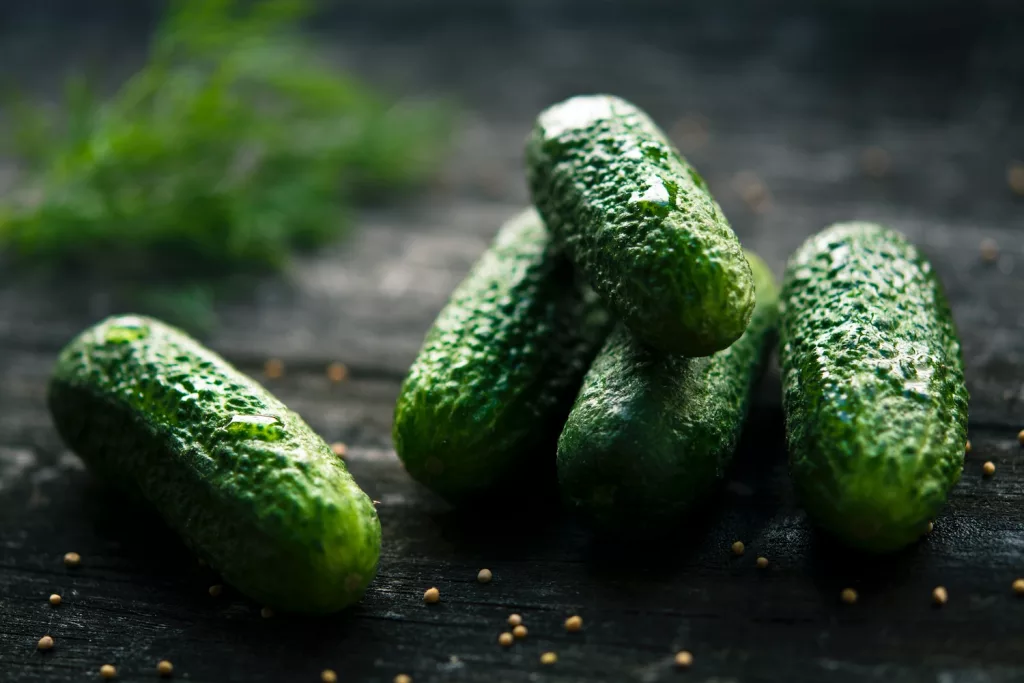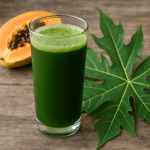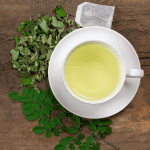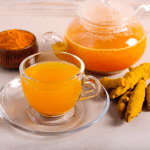There is no question that all pickles have a mouth-watering flavour. But are there any health benefits of pickles? Yes, they do, but there are several factors to consider when looking for pickles with health benefits.
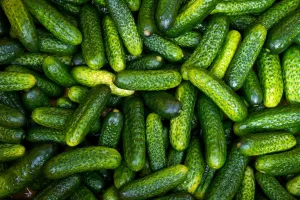
The practice of pickling dates back thousands of years. Pickled foods range from traditional condiments like pickles on burgers to more exotic items like fermented vegetable products.
Pickled cucumbers are likely to spring to mind when someone mentioned pickles, whether in the form of spears, slices or whole, miniature cucumbers in vinegar, salt and spices. The vinegar brine that covers the cucumber is also rich in vitamins and minerals. The nutritional value of them can vary depending on the ingredients used to make them.
Not all pickles are fermented. They can be fermented or quick-pickled in vinegar brine. When vegetables and fruit are fermented, their natural sugars are broken down by good bacteria. This process makes fermented pickles sour.
During the fermentation process, they are soaked in salt water for several days. The active bacteria that carry out the fermentation process remain in the final product, so eating or drinking it provides a healthy dose of bacteria.
The pickles you find in the supermarket have probably been made using a brine rather than a fermentation process. Pickling brine usually consists of salt, vinegar and water, with optional flavourings such as sugar, spices and herbs.
The salt and vinegar in pickles give them their tangy flavour, but they don’t have the live probiotics that fermentation does. Here are some of the benefits of pickles to help you decide if they are good for you.
Should you eat pickles? What are the health benefits of Pickles?
Pickles, especially fermented pickles, which are rich in probiotics, may have the following health benefits
1. Regulation of glucose levels
They are made with a vinegar-based brine may be beneficial for controlling blood sugar levels. Maintaining a steady blood sugar level can help control your appetite. It is also important for the health of people with diabetes to avoid spikes in blood glucose levels.
Watch the amount of vinegar you eat. Pickles and other vinegar-rich foods can help control blood sugar in a simple way, so it may be worth trying for those who are interested.
2. Stabilising electrolyte balance
Pickles are an excellent source of electrolytes due to their high sodium content. Electrolytes are a class of salts that are essential for bodily functions. It is possible for a person to lose electrolytes along with water when they become dehydrated.
This suggests that pickle juice may be an alternative way of replenishing electrolytes in people who are vomiting, have a fever or are dehydrated.
3. Supplying antioxidant compounds
Eat more pickles to increase your daily intake of antioxidants. All fruits and vegetables contain natural antioxidants that help the body fight off free radicals.
Free radicals are uncontrolled molecules in the body that have been linked to many diseases. These include cancer, inflammation, cardiovascular disease and other long-term conditions. Aging may also be affected by free radicals.
4. Relaxation of muscle cramps
Pickle juice may reduce the intensity and duration of muscle cramps. In one study, researchers electronically induced muscle cramps in men who were already well hydrated, once and then again after a week had passed.
They found that people whose cramps were relieved by drinking pickle juice quickly felt better. The researchers believe that pickle juice inhibits the activation of alpha motor neurons in cramped muscles, which ultimately reduces the duration of the cramp and the time needed to recover.
As the benefits were not seen when deionised water was used, electrolytes and hydration status alone could not explain the findings. This suggests that there may be another component of them, other than water and electrolytes, that helps to relieve muscle cramps.
5. Improves digestive health
Probiotics are found in abundance in fermented foods such as pickles. The gut microbiome, or population of beneficial bacteria, is maintained by taking probiotics. Having a healthy population of gut bacteria can help reduce irritable bowel symptoms. It may also help digest and absorb nutrients.
The health of the gut microbiome can be restored or maintained by eating fermented foods, as many contain active probiotics. However, probiotics are only found in certain types of fermented foods and drinks; vinegar, alcohol and baked sourdough bread are not among them.
Anyone can try new techniques as there are many different ways to prepare pickles. Choosing the right cucumbers and using the right mix of spices can make all the difference. Most pickling recipes call for salt, white vinegar and spices such as dill and mustard seeds. Some parts of Asia also use oil.
Pregnant women and people taking immunosuppressants, chemotherapy or who have HIV should avoid eating homemade pickles. There is a risk of getting sick from eating homemade pickles due to the presence of harmful bacteria. Unless they come from a reliable, regulated source, people who are vulnerable to disease should avoid eating cucumbers.
Not everyone is going to get the most out of pickles. For example, dill pickles have an extremely high salt content, while sweet pickles can be very sweet. One large dill pickle contains more than two-thirds of an adult’s recommended daily salt intake.
For people with high blood pressure or other cardiovascular problems, they are not the ideal choice either. This is because they contain a lot of sodium. Very salty pickled foods can increase your risk of stomach cancer, which is also a concern for most people with high blood pressure.
Fermented pickles, which are a good source of probiotics, may offer health benefits if you can handle the extra sodium. Conventional pickles, which lack ‘good’ bacteria, may not pack a nutritional punch, but they do provide a respectable amount of vitamin K. Eat them in moderation to satisfy your need for something salty and crunchy.
Disclaimer: This is for informational purposes only.
Did you find this helpful? Let us know in the comments.
Source: Medical News Today
You can also visit our Facebook and YouTube pages to know more about plants and their health benefits.
You might also like:
- How To Prevent Cancer With The Help Of These 6 Foods?
- The Health Benefits Of Chives: What You Need To Know
- How Important Is It To Know The Temple Tree’s Medicinal Benefits?
- The Interesting Health Benefits of Crimson Ipomoea
- 6 Remarkable Medicinal Benefits Of Turmeric And How To Treat Urinary Illness With This

